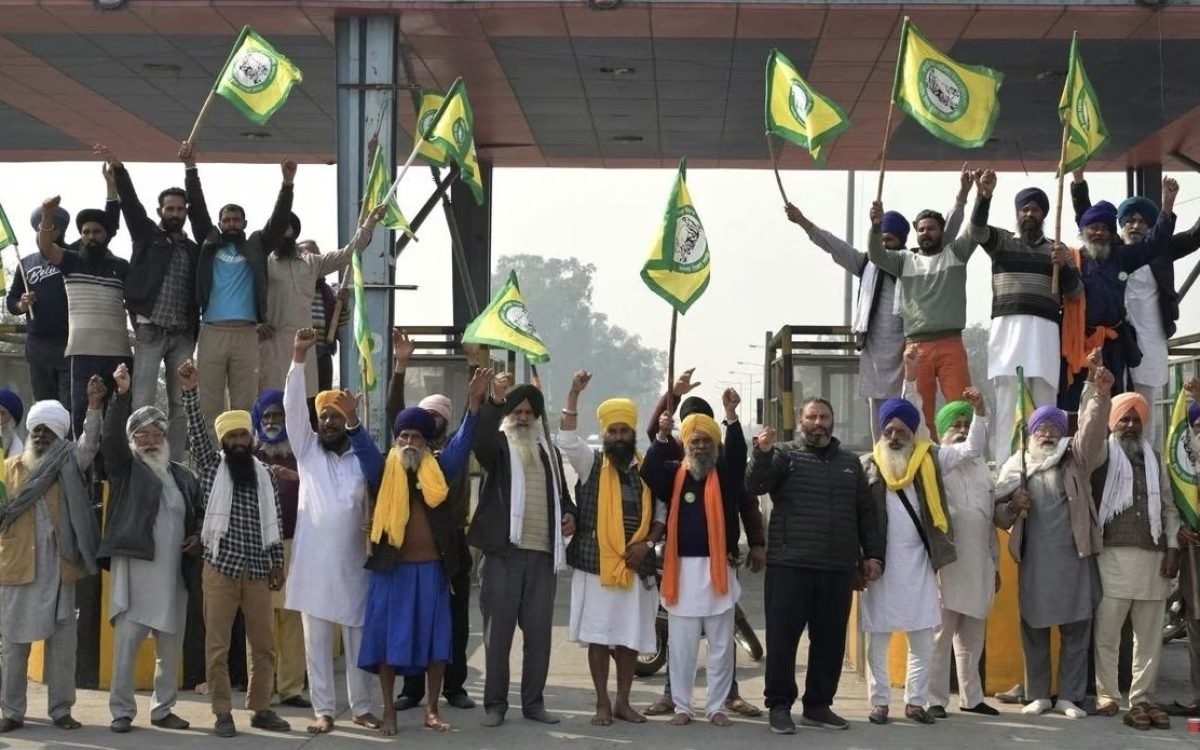The recent extension of the suspension of Internet services in Punjab’s jurisdictional areas has once again brought to the forefront the delicate balance between maintaining public safety and upholding civil liberties. The decision by the Central government to extend the Internet shutdown until February 24, amidst the ongoing farmers’ agitation, underscores the complexities surrounding freedom of communication and the imperative of ensuring public order.
Context and Background:
The extension of the Internet suspension comes ahead of crucial meetings between protesting farm leaders and Union Ministers, signaling the government’s efforts to manage and mitigate potential unrest. The decision, invoked under the British-era Indian Telegraph Act, 1885, is aimed at averting public emergencies and maintaining public safety.
Legal Framework and Authority:
The Union Ministry of Home Affairs (MHA) invoked its powers under the Indian Telegraph Act, 1885, and the Temporary Suspension of Telecom Services (Public Emergency or Public Safety) Rules 2017 to enact the Internet shutdown. This marks the first instance of the MHA exercising such authority outside the national capital.
Implications and Concerns:
While law and order enforcement traditionally falls within the purview of state governments, the Central government’s intervention raises questions about federalism and the division of powers. The extension of the Internet shutdown has sparked concerns about the potential infringement of civil liberties, including the right to freedom of expression and access to information.
Impact on Society and Economy:
The suspension of Internet services has significant implications for various sectors, including education, healthcare, commerce, and communication. The disruption disrupts daily activities, impedes economic transactions, and hampers access to essential services, particularly amidst the ongoing COVID-19 pandemic.
Balancing Security and Rights:
The decision to extend the Internet suspension underscores the government’s responsibility to safeguard public safety and prevent potential unrest. However, it also highlights the need to strike a delicate balance between security imperatives and the fundamental rights of citizens, including the right to freedom of expression and assembly.
Regional Ramifications:
The extension of the Internet ban in Punjab’s neighboring state, Haryana, further amplifies the regional implications of the government’s decision. The coordinated measures across state boundaries underscore the interconnected nature of security challenges and the need for cohesive responses.
Conclusion:
The extension of the Internet suspension in Punjab reflects the complexities of governance and security in a diverse and dynamic democracy. While prioritizing public safety is paramount, it is essential to uphold constitutional values and ensure accountability in decision-making processes. Moving forward, a transparent and inclusive approach to addressing security concerns while respecting civil liberties is imperative to fostering trust and resilience within society.
In conclusion, the extension of the Internet shutdown underscores the need for nuanced and context-specific responses to security challenges, grounded in principles of democracy, transparency, and respect for human rights. As India navigates the complexities of governance and security, it is essential to uphold the values of pluralism, dialogue, and inclusivity in shaping policies that affect the lives and liberties of its citizens.









